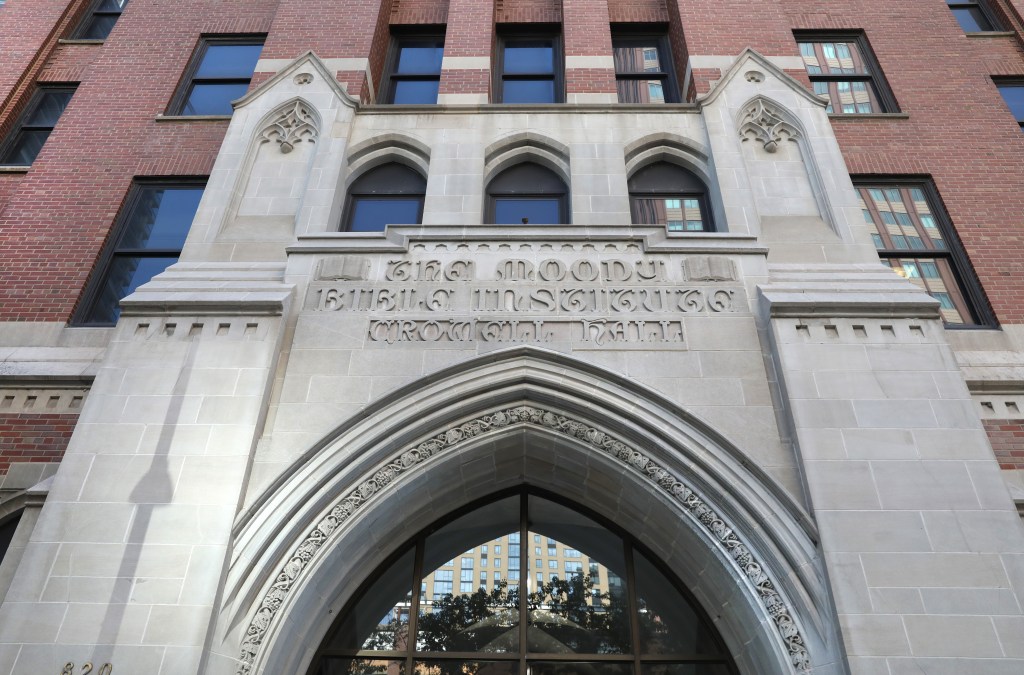[ad_1]

As the Christian faithful gather to celebrate Easter this Sunday, a lawsuit over religious beliefs is getting new life in Chicago’s federal courts.
In a March 18 decision, the 7th U.S. Circuit Court of Appeals sided with a teacher who claims Moody Bible Institute fired her because of sex discrimination. The private evangelical Christian college had sought to dismiss the complaint, saying in part that it’s forbidden based on the U.S. Constitution’s protection of religious freedom.
At the heart of the dispute is a tough call about whether religious doctrine was merely a cover for illegal discrimination in the workplace. Moody has claimed that it fired Janay Garrick because she challenged the church’s teaching that only men can become clergy. Garrick has said that Moody knew her views on the topic when it hired her and that the school treated her badly because she was an outspoken woman, not because she thinks qualified people should be considered for clergy roles regardless of their gender.
While the appellate dispute turned on a technical matter of the law, the case wound up pitting one Donald Trump-appointed judge who wrote the majority opinion siding with Garrick against another Trump appointee who dissented, saying the lawsuit improperly entangles Moody in litigation over a strictly religious question.
The upshot is that Garrick’s lawsuit is slated to continue in a Chicago federal court, with the potential to eventually reach a U.S. Supreme Court whose conservative majority has repeatedly sided with Christians in major religious cases.
Garrick’s troubles started after Moody hired her in 2014 as a non-tenure instructor on a one-year contract to teach communications classes, according to the 7th Circuit decision. The ruling suggests that Garrick became unpopular with her colleagues after she objected to a hostile atmosphere toward women and LGBTQ+ people at the conservative school.
Male colleagues ignored, avoided and ridiculed her, and an executive in charge of human resources told her to stay in her office to avoid negative interactions, the decision relates. When she co-designed a presentation for making the campus more inclusive, a supervisor criticized her “inflammatory rhetoric” and told her she needed to “learn how to speak around here.” Her male co-presenter wasn’t similarly reprimanded.
The school refused to lighten her teaching load while she finished her terminal academic degree, as it did for male faculty, while requiring her to develop five new courses, a heavier workload than Moody required of her male counterparts. When she applied for a tenure-track job for which she was apparently qualified, the school rejected her application within an hour, despite her strong performance reviews to date.
In 2017, Moody gave her a negative performance review just three months after she had received a positive one. For the first time since her hiring three years previously, Garrick’s superiors said her views about female clergy were problematic.
Shortly afterward, they cited those beliefs in a letter explaining that her annual contract would not be renewed. The letter said she would be paid for the rest of the year, but when she discussed her termination with students and student reporters, Moody fired her and expelled her from campus, according to the 7th Circuit decision.
Garrick’s dismissal coincided with a turbulent time at the Bible college, which was founded in Chicago by businessman and evangelist Dwight L. Moody more than a century ago. The institution receives federal financial assistance, subjecting it to federal rules that prohibit sex-based discrimination.
Beginning in 2017, the same year it fired Garrick, Moody experienced high-profile financial problems, leading it to shutter a campus on the West Coast and cut faculty and staff in Chicago. Both its president and chief operating officer resigned, and the school pursued a plan to sell part of the valuable property making up its campus on the Near North Side of Chicago. In 2022, the Chicago City Council approved the North Union redevelopment project on the former Moody land.
We don’t envy the judges in this case. It appears the school went after Garrick, rebuking her for speaking out, loading her with work and subjecting her to hostility from her peers. But there’s no simple way to separate Moody’s religious motivations from its other motivations in forcing out a teacher it evidently viewed as a troublemaker who didn’t fit in.
The case law cited in the appellate decision is revealing: The majority cites the case of a junior high teacher at a Catholic school who was fired after she underwent in vitro fertilization, which the church said conflicted with its moral doctrines. A judge upheld the teacher’s right to pursue her lawsuit.
The dissent, on the other hand, relies on what’s known as the “fake nun” case, in which an archbishop determined that a woman was not a nun in good standing, as she claimed. She sued for defamation, losing when the court decided the Constitution forbids the government from second-guessing religious judgments.
The Garrick case differs from both of those, of course. The courts that are deciding it will need to determine whether something unlawful occurred without wading into religious doctrine. That will be tricky, and we will be watching closely with the knowledge that additional cases are probably coming that will claim religious justifications for conduct that otherwise would be wrong in the eyes of the law.
Submit a letter, of no more than 400 words, to the editor here or email letters@chicagotribune.com.
[ad_2]
Source link

